Indeed Dogs are known as the best friend of humans. They feel the companionship of love and loyalty that is unmatched for us. However, we have a great responsibility to keep them safe and secure but it seems that sometimes dogs have run away from home. This behavior is so worrying for any dog owner. It is essential to understand why dogs run away and take steps to prevent such this incident happened in the future.
Many people have questioned why do dogs run away. If your dog escapes his yard, and it seems to be securely fenced. you might have a challenge on your hands. Walk the perimeter of your yard, pushing on the fence as you go along, to check for loose boards or gaps in the chainlink that a crafty dog can slip through. What might seem inconsequential to you may be just big enough for your dog. Slightly larger gaps between the ground and the bottom of the fence might be your dog’s route to freedom too.

In this article, I will try to explore some basic reasons “why dogs run away”.
1. Curiosity:
We well know that dogs are curious animals naturally. So they love to explore their surrounding. If a dog sees an open gate or an unlocked door. He may try to take the opportunity to explore the outside world. This behavior is most common in younger dogs. Who have not yet learned to stay in one place. Puppies are particularly curious. When they see something interesting or unfamiliar they tend to run away to an undefined direction.
2. Fear and Anxiety:
Fear and anxiety are common reasons why dogs run away. Dogs are very sensitive animals, and they could become scared or anxious in certain situations. Loud noises, such as thunder or fireworks, could scare a dog and cause him to run away. Dogs could also become anxious when left alone for long periods which could lead to separation anxiety.
3. Boredom:
Dogs are social animal, and they want attention and interaction from owners. If a dog is left alone for a long time, he could become bored and restless. This boredom could lead to destructive behavior. Like chewing or digging, and could also cause a dog to run away in search of something more interesting to do.
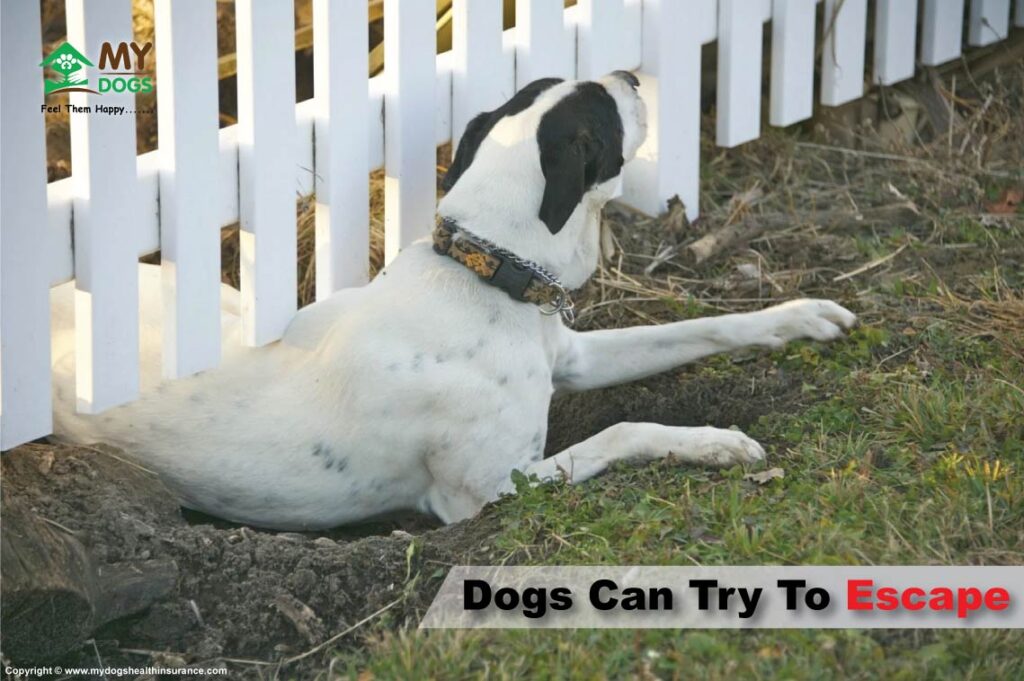
4. Escape:
Dogs can try to escape from something that feels bad. For example, if someone human or animal is mistreated or abused him. He may try to run away to avoid this mistreatment with him. Dogs may also try to escape if they are felt threatened by other animals or humans. In some cases, a dog could run away if he felt trapped or confined.
5. Hormones:
Many times I observed that unneutered male dogs are more likely to run away than neutered dogs. Because unneutered dogs have higher levels of testosterone. Which could lead to a desire to roam and mate. While female dogs, when they felt heat could also run away in search of a mate. Therefore, it’s very important to keep tight-tie female dogs on a leash in a secure area during this time.
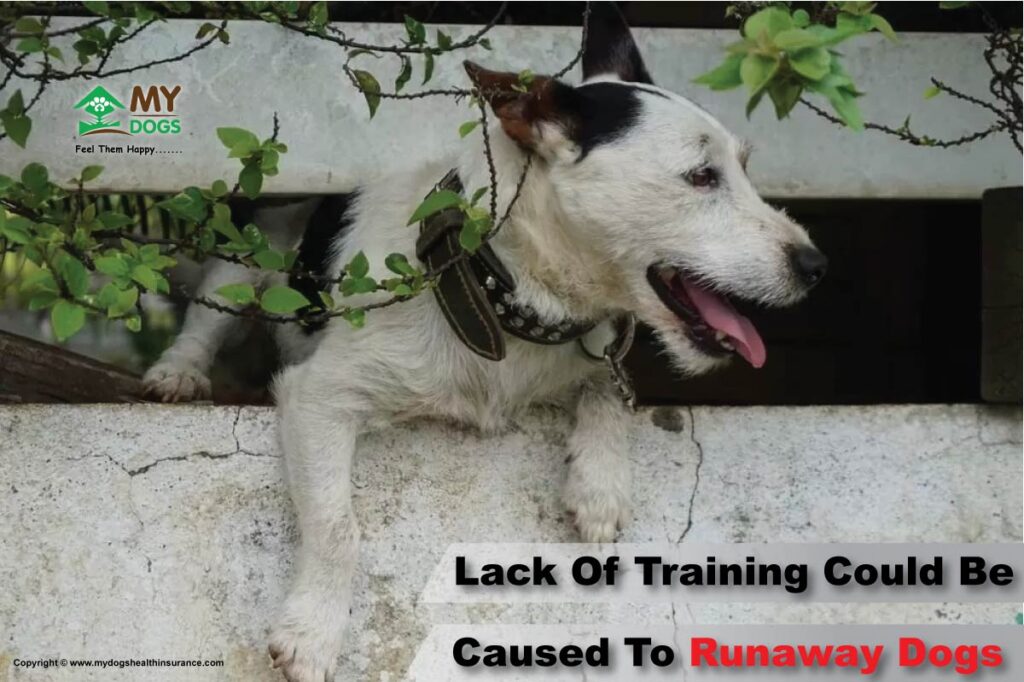
6. Lack Of Training:
C. When the dogs have not been properly trained are more likely they run away. For example, if the dog has not been taught how to come? when called or to stay in one place, he might run away. If dogs see something interesting or if they become scared or anxious. Proper training could help prevent dogs from running away and could also improve their behaviors.
7. Natural Instincts:
Dogs are descended from wolves, and some of their natural instincts still remain. One of these instincts is the desire to roam and explore areas. Some dogs may run away because they have a natural urge in their behavior so they do this. This behavior is more common in breeds that were originally bred for hunting
8. Lack Of Supervision:
When dogs are left unsupervised in an unfenced area. It’s more chance that they run away. For example, If a dog is left alone in a yard or open area. He could decide to explore or chase after something that catches his attention. So supervision of dogs is more important when they are outside and keeping them in a secure area.
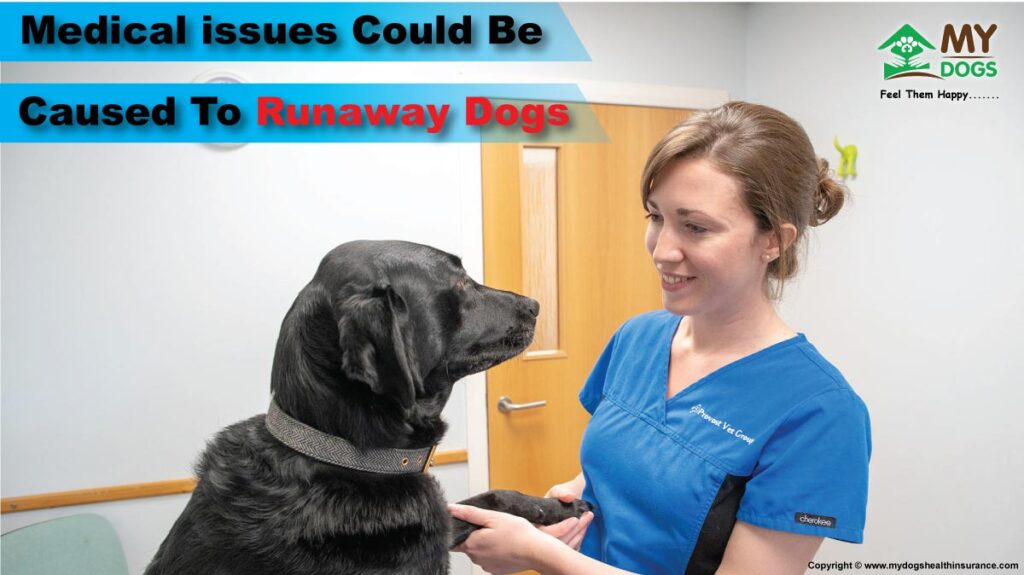
9. Medical issues:
Some medical issues could cause dogs to run away. For example, if a dog is feel pain or discomfort, he may try to run away to find some relief. Many dogs have certain medical conditions, like as cognitive dysfunction syndrome, and may also become disoriented and run away from home.
10. Attention-Seeking Behavior:
Some dogs may run away as a way of seeking attention. This may be especially true for dogs who have learned that running away results in increased attention or affection from their owners, even if it is negative attention.
11. Lack Of Exercise:
Dogs’ body structure needs regular exercise to stay healthy and happy. If a dog does not get enough exercise. He may become restless and bored, which can lead to running away from home. Regular walks and playtime could help prevent this running away behavior.

12. Changes In Routine or Environment:
It’s true that dogs are creatures of habit. Changes in their routine or environment could stressful for them. To move to a new home, changes in the family dynamic, or changes in the dog’s routine could all cause him to run away. Help the dog adjust to any changes slowly and to provide extra attention and reassurance during this time.
13. Lack Of Socialization:
When Dogs that have not been properly socialized may become fearful or aggressive toward other dogs or people. This fear or aggression could cause a dog to run away if he feels threatened. Socializing a dog at a young age could help prevent this behavior.
14. Breeds Prone To Running Away:
Some types of breeds of dogs are more prone to runaway than others. These dogs are originally bred for hunting or herding. Like hounds or border collies, have a natural instinct to roam and explore. It is important to provide plenty of exercise to these dogs. And mental stimulation to prevent them from running away.
15. Lack of Identification:
Proper identification could increase the chances of the dog being found. Return the dog to his owner if the dog is run away. A collar with a tag that includes their name and the owner’s contact information is worn on dogs’ necks. A microchip is also recommended as a way of identifying a lost dog.
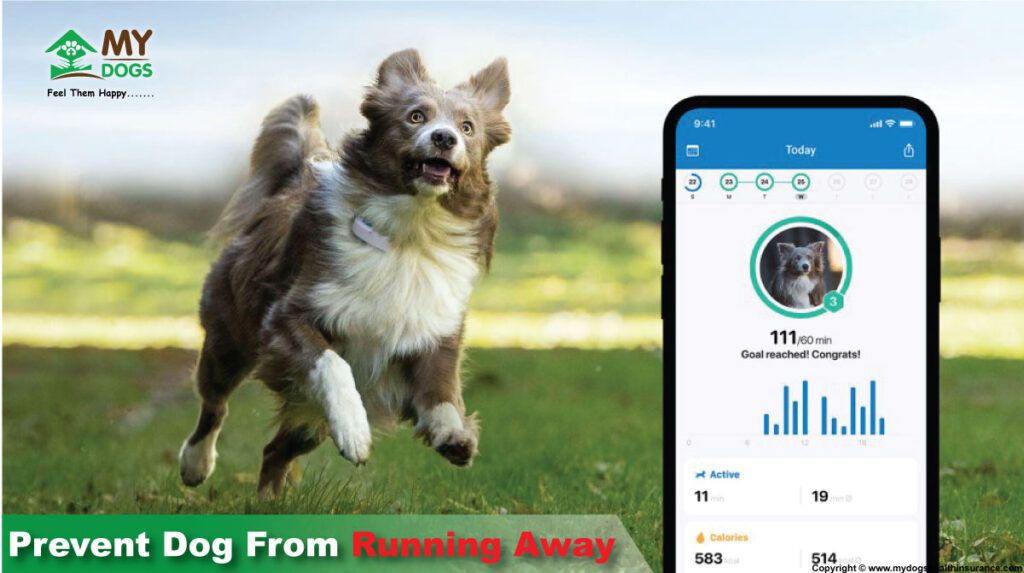
Preventing Dogs From Running Away:
Avoiding dogs runny-away has many methods. First, ensure that the dog has been properly trained and socialized. Dogs that have been trained to come when called. And to stay in one place are less likely to run away. Socializing a dog at a young age can also help prevent fear and aggression toward other dogs and people.
- Always Provide plenty of exercises to dogs with mental stimulation that could prevent them from becoming bored and restless. Regular walks, playtime, and training sessions could also help the dog keep happy and content.
- It is also very important to provide a safe and secure environment to the dog. Dogs should be supervised when outside. They should be kept in a secure area when left alone. Fenced yards, crates, and kennels are all effective ways of keeping a dog safe and secure.
- Finally, it’s more important to have proper identification for the dog. Collars with tags and microchips are both effective methods of identifying a lost dog and increasing the chances of it being returned to his owner.
Most of dog owners didn’t take these above steps, very curious to know why do dogs run away.
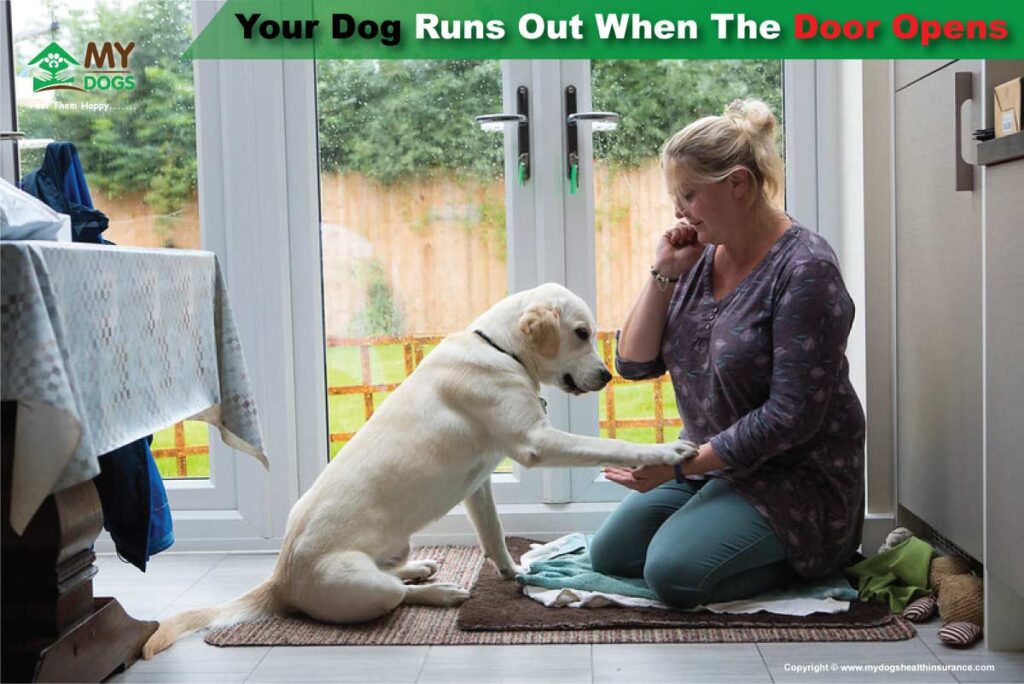
Your Dog Runs Out When The Door Opens:
When somebody goes in or out of the home. You have to seriously train your dog for it when the door is open. Eventually, the dog needs to learn to sit at the door before you open it. The dog waits for everybody to go through it first. However, you need to prevent the dog from getting to the door before you get to that point.
Always keep your dog in another room. Or in his crate whenever someone comes in or goes out will work,.But that will be hard to enforce on a regular basis. One delivery, or a kid’s friend opening
the door unexpectedly is all it takes to have your dog gone again.
Until your dog is getting trained. Keep him tethered to you at all times. Set out some rules for family members that are following. And make sure everybody understands them:
- Nobody opens the door until the dog is secured.
- Nobody lets the dog outside without having him leashed.
- All potential visitors must be alerted to the dog’s tendency to bolt.
- The dog gets nowhere unless he is sitting.

Using Tight Leash and Head Halter Collar:
The last rule will take a lot of practice. Have a stream of people walk in and out of your house while your dog is with you and on a tight leash and a head halter collar. Using the head halter, hold your dog in a sitting position as people come through the door. Tell him to stay. If he gets up, put him back down and tell him to stay again. This goes back to the basic obedience commands.
It’s not going to be as easy as training basic commands though. Your dog has a specific goal in mind, and his motivation is high. You’ll need to heavily reinforce every moment that he looks at the open door and doesn’t try to run through it. If he sits still, even for just five seconds, catch him before he struggles against the leash and reward him with one of the highest-value treats you have.
Don’t miss the mark and accidentally reward him for trying to get to the door! Count on practicing his sitting by the door at least ten times a day every day for a month or more.

The Dogs Are Escape Artists:
Every breed has them. These are the dogs that no fence can contain, that nobody can trust off-leash: the Houdini dogs. Houdini dogs will climb trees to get over a tall fence, or they will scale the fence itself. They will dig under gates, squeeze through a hole your daughter’s hamster couldn’t fit through, and slip out open windows. A maximum security prison would be nothing more than an afternoon’s challenge to these dogs. Houdini dogs tend to end up in shelters a lot, either because their owners couldn’t take the stress anymore, or they were picked up as a stray and never reclaimed. Many are hit by cars and killed in the streets.
Neutering will remove a lot of the desire to roam the neighborhood, but it probably won’t cure your dog of his escapist tendencies. Some dogs, like my Ozzy, just like to go off on a jaunt, even
after having been neutered at six months of age. He’s six years old now, and he still sometimes tries to go off and tour the town.

How Does Dog Get Away From You?
Though you might not like to admit it, your dog’s escapist tendencies are some of your behavior as an owner. Dogs need guidance to follow, and if they don’t get it, they will compensate by making up their own rules. Therefore you must want to give up and declare him a “bad dog.” this probably isn’t the right answer for you.
Along many dog owners like to believe that their dogs are better behaved than they actually are. Perhaps you consider your dog fairly polite and obedient (he knows basic commands, he doesn’t beg at the table, and he doesn’t go on the furniture). so you often let him out into an unfenced yard “just for a few minutes,” assuming everything will be fine. To your dismay, he keeps wandering off. It may seem more convenient for you to take these kinds of shortcuts. But it will prove detrimental to both (you and your dog) for a long time. Take some necessary steps to get the situation under control now. Before getting too late.
If your yard is not fenced, then, please, seriously consider changing that. A solid fence is one hundred times safer than a chain or just letting your dog loose in the yard. Underground fences are better than nothing, but I’m not a fan of them for various reasons, and they don’t measure up to a true physical barrier.
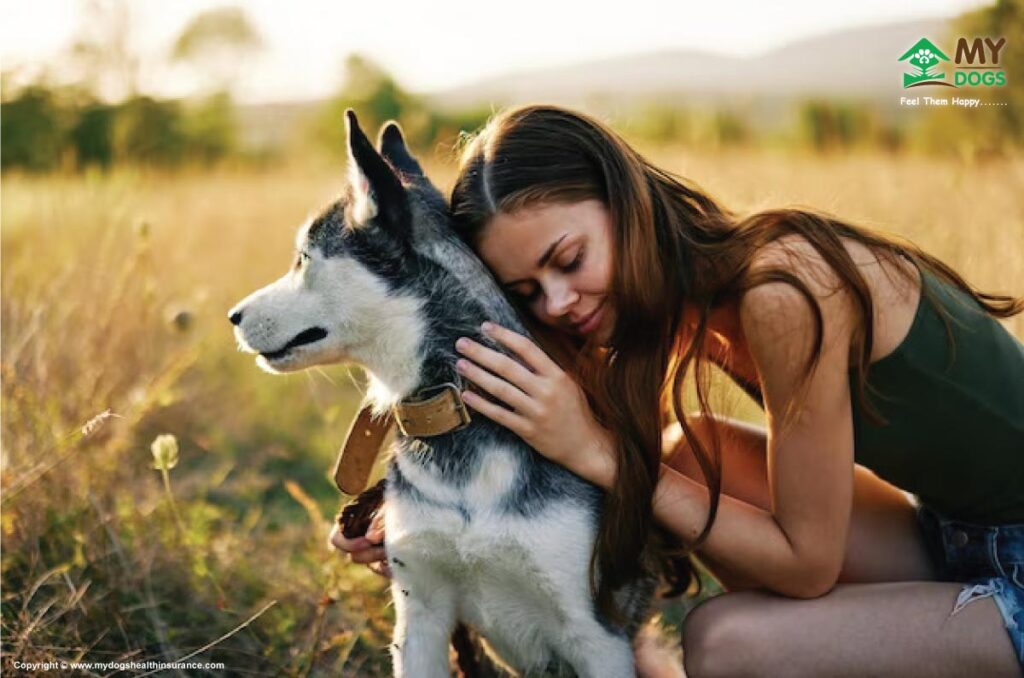
Conclusion:
In conclusion, you learn that dogs have many reasons of run away from home. Include curiosity, fear, boredom, escape, hormones, lack of training, natural instincts, lack of supervision, medical issues, attention-seeking behavior, lack of exercise, changes in routine or environment, lack of socialization, and breed tendencies. It’s more important to understand why do dogs run away, which could help prevent incidents from happening in the future. Proper training, exercise, socialization, and identification can all help prevent dogs from running away and ensure their safety and well-being.
Note: For more informative Articles about dog Training & Activity – Click Here
FAQ
Do dogs come back when they run away?
It’s too difficult to say whether dogs will come back when they run away. As their behavior could vary depending on many factors.Like as dogs personality, training, and environment. However, a 2012 study shows, 59% of lost cats and 20% of lost dogs return home after being lost. But there are always additional steps you should take to help ensure a happy reunion to back home.
Where do dogs go when they run away?
They may go to a variety of places when dogs run away. Depending on their personality, breed, and surroundings. Some dogs may wander around the neighborhood or nearby areas, while others may travel much farther. Looking for other dogs and for other humans who are friendly and likely to comfort, feed and shelter it. Neighbors’ yards and public parks are spots it will like. If it is a shy or older pet and not trusting of strangers, it will hide. Bushes and under cars are good spots.
What to do when dogs run away?
it’s important to act quickly to increase the chances of finding the dog quickly and safely when a dog runs away. You should search your local area, alert your neighbors, and Post on social media platforms. contact local animal shelters and vet clinics. Use lost dog websites and apps, and keep searching until you find your pet. By providing proper training, exercise, and proper supervision you could prevent your dog from running away in the future.
Why did my dog run away and not come back?
There could be many reasons behind it. why do dogs run away and not come back? Such as being frightened by loud noises. Chasing after something. Being in heat (in the case of female dogs). Or simply getting lost. Dogs may also run away if they are not properly trained or supervised. Or if they are not getting enough exercise or mental stimulation. It’s important to take important steps to prevent dogs from running away. Like as providing them with proper training, exercise, and supervision.

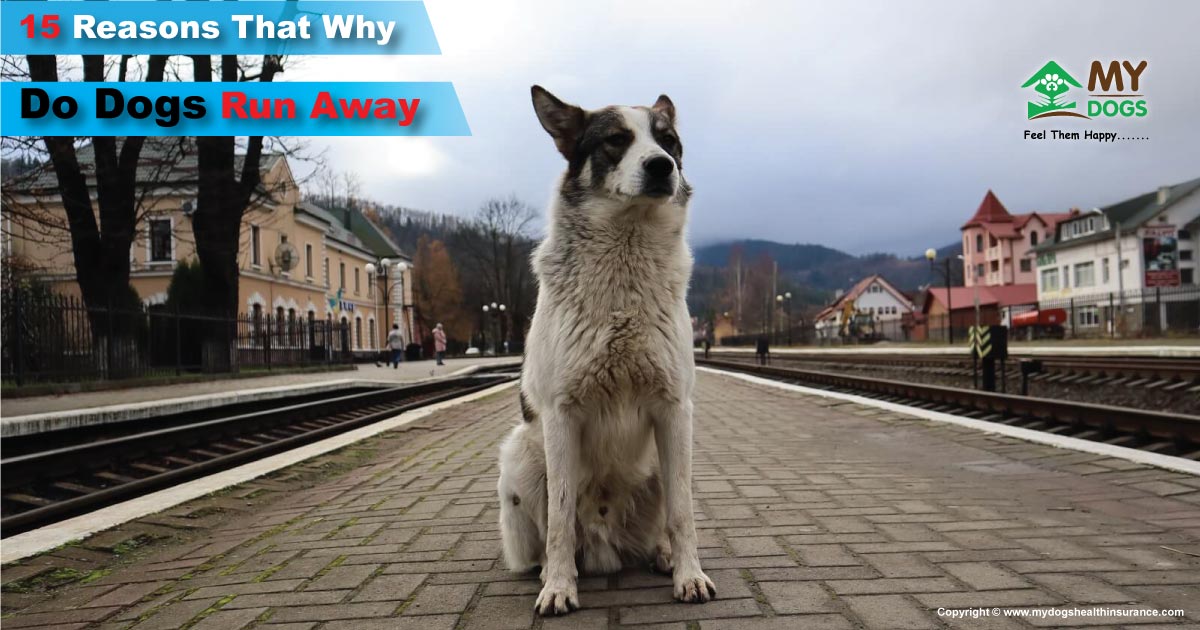


Pingback: Benefits: Royal Canin Hypoallergenic Dog Food - MY DOGS CARE
Pingback: Why Do Dogs Run Away – Articla District – Bloggers Unite India
Pingback: Why Do Dogs Run Away – Article Shore – Bloggers Unite India